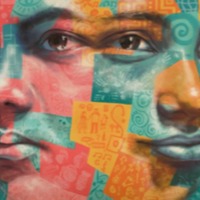
Kyi
In March 2013, 14 victims aged between 16 and 46 years, and all from Myanmar, were rescued by local police from a fishing port and processing factory in Kantang where they were being held by brokers. Most of the victims had just returned from six months at sea, on three separate fishing vessels. Despite receiving no pay, by selling dried squid to the boat they transferred fish to, one of the group was able to save enough money to buy a mobile phone and SIM card. This enabled them to alert one of the other victim’s family members, who contacted a helpline for reporting human trafficking to secure their rescue. The Environmental Justice Foundation interviewed six victims, none of whom had ever been on a fishing boat, or even seen the sea before being trafficked. They gave accounts of being deceived by brokers who told them they would be working in factories. They reported being beaten or seeing others beaten, and working in arduous conditions onboard the fishing vessels. Three of the victims had been trafficked from within Thailand, whilst working in a chicken factory in the north of the country. A visiting broker had told them that he would secure them a better job in another factory, with higher wages. "Kyi" recounts some of the brutal violence used against him and others being forced to work on these ships.
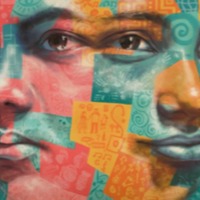
Kumar
Men and women from throughout Asia and East Africa who migrate to Iraq are subjected to forced labor as construction workers, security guards, cleaners, handymen, and domestic workers. Some foreign migrants are recruited for work in other countries in the region but are forced, coerced, or deceived into working in Iraq and the Iraqi Kurdistan Region. In January 2016, the Ministry of Labor and Social Affairs reported approximately 140,000 foreign workers lacked formal work permits. Kumar, a father of two, left his home village in Nepal for Jordan after promises of a well-paid job abroad. Kumar told the UN Human Rights Council that he nearly died as he together with 12 others were transported through two countries in a convey of vans to a military base in Iraq.
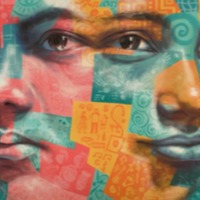
Rini
Rini is an Indonesian woman who was a domestic slave in Indonesia, where she was confined to the house, verbally and physically abused, and her salary withheld. She was only able to escape from the situation when one of the other workers in the house died of injuries from the abuse. The government has taken some positive steps towards protecting domestic workers. Following pressure from local and international organisations, including Walk Free, the Indonesian House of Representatives recommended the Domestic Workers Protection Bill for its list of priority legislation in 2016. Rini was enslaved without leaving Indonesia, but significant numbers of Indonesians are exploited in forced labor and debt bondage abroad in Asia and the Middle East, primarily in domestic service, factories, construction, and manufacturing, on Malaysian palm oil plantations, and on fishing vessels throughout the Indian and Pacific Oceans.
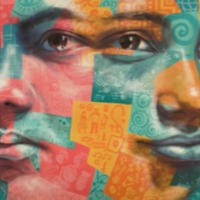
Dara
“Dara” was enslaved for sexual exploitation as a child in Cambodia. Here she discusses her enslavement and the psychological impact that this has had on her, explaining the difficulty of reintegrating into society after her enslavement, and that she feels “finished” and “dead.” She also talks about her work as a volunteer helping other survivors of slavery to train and take control over their lives. Despite significant attempts to curb the commercial sexual exploitation that Cambodia became famous for in the 1990s, NGOs report the industry has been pushed underground and sex offenders are still able to purchase sex with children through an intermediary rather than more overt selling of sex in brothels.
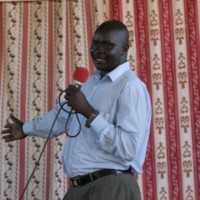
Anywar
Anywar was abducted in 1988 at age 14 to serve as a child soldier in the Lord's Resistance Army (LRA). Led by Joseph Kony, the LRA was fighting to overthrow Uganda’s secular government. The war in northern Uganda lasted from 1986 until 2006, during which time more than 35,000 boys and girls were enslaved by the LRA. In 1999, Ricky and his friends started Friends of Orphans (FRO), an organization which works to contribute to the empowerment, rehabilitation and reintegration of former child soldiers, abuductees, child mothers, orphans, and to combat the spread of HIV/AIDS.
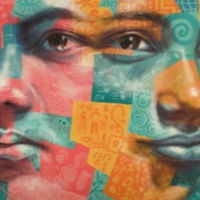
Adelina
Born in Albania, Adelina was trafficked within the country. Many women are trafficked into richer Western European countries from the poorer Eastern countries, including Albania. The fall of communism in 1991 led to a rise in organized crime in Albania: in 2001 it was estimated 100,000 Albanian women and girls had been trafficked to Western European and other Balkan countries in the preceding ten years. More than 65 percent of Albanian sex-trafficking victims are minors at the time they are trafficked, and at least 50 percent of victims leave home under the false impression that they will be married or engaged to an Albanian or foreigner and live abroad. Another ten percent are kidnapped or forced into prostitution. The women and girls receive little or no pay for their work, and are commonly tortured if they do not comply.